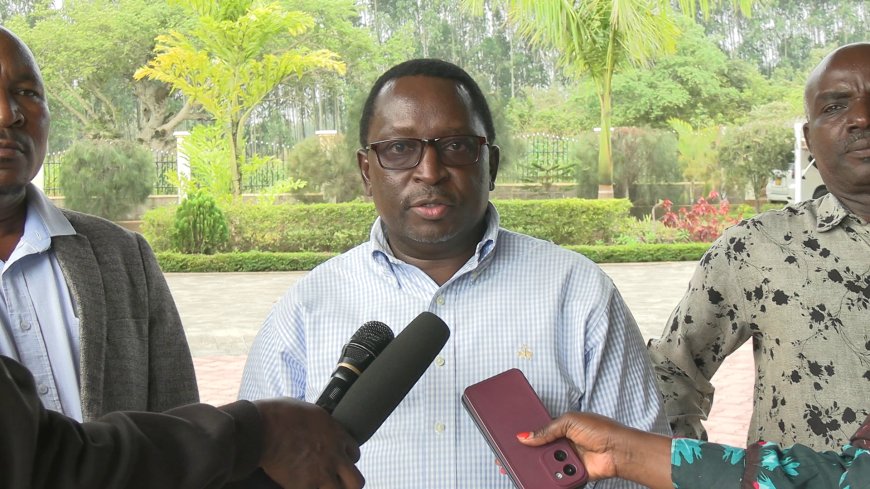Government urged to speed up the issuance of licenses and permits to artisan and small-scale miners

Migori
Wednesday July 10, 2024,
KNA by Geoffrey Makokha
The National Chair of the Artisan and Small Scale Miners Association of Kenya (ASMAK) Dan Odida has called upon the government to speed up license and permit issuance to artisan and small-scale miners.
Speaking at one of the hotels in Migori town after meeting mining stakeholders, Odida noted that the Mining Act 2016 gave the green light to the artisan and small-scale miners to legalise their operations.
The Mining Act 2016 is an Act of Parliament in Kenya established to provide clear guidance on mining activities in Kenya.
The Act legalises Artisanal Miners and promotes transparency and accountability through the use of the Online Mining Cadastre portal for licensing and for management of mineral rights and permits.
Odida lamented that eight years down the line, the artisan miners have not received recognition and licences that were meant to legalise their mining operations.
He applauded the Ministry of Mining for trying to organise miners in groups and cooperatives and the gazettement of the artisan mining committees in various counties.
The official however explained that it will take the political goodwill to operationalise the committees to fasten the issuance of licences and permits for Artisan and Small Scale Miners.
Odida said that delays in the gazettement of artisan mining committees in various counties will further delay the issuance of the permits and licences to the local communities and cause more harm and accidents that will greatly interfere with the expectations of the mining industry.
On Tuesday two people lost their lives while mining in one of the mining sites at Kanga-Rongo Sub County with four people nursing minor injuries when a mining site collapsed.
He also added that the few that have been gazetted have not been operationalised delaying the issuance of licences and permits to the Artisan and Small Scale Miners.
Odida pointed out that it was important for the government to prioritise its people by giving them opportunities in the mining sector rather than the industry being dominated by foreigners, especially in the large-scale sector.
The official urged the mining stakeholders to be sincere in public participation to create a serious impact that reflects the wishes of Artisan and Small Scale Miners.
The Chairperson of the Kenya Chamber of Mines Patrick Kanyoro noted that the organisation was a key advocacy body in the mining sector that the government should work closely with to provide solutions in the mining sector.
Kanyoro explained that the mining sector if properly managed can be able to raise its contribution to the Gross Domestic Product (GDP) from the current one percent to over 10 percent to create more jobs and wealth for the people.
He said that the mining industry was at its lowest levels because the voices in the mining sector were not being heard, adding that by delaying the issuance of licences and permits, the government was missing an opportunity to generate revenue and create employment.
The official also criticised the introduced Movement Permits without consulting mining stakeholders.
He urged the government to drop the permit to ease the many licences being imposed on miners.
He also called upon the State Department of Mining, the National Mining Cooperation (NAMICO) and the Mineral Rights Board to work together to project the voices of miners in the country.
Kanyoro however, disclosed that for the last two years, the government has not generated any iron ores revenue after introducing an export levy of 175 dollars per tonne on the industrial minerals.
The iron ore-producing counties like Kilifi, Kitui, Taita Taveta and Homa bay have not been able to export iron ores for the last two years causing the government to lose three million dollars from royalty and job opportunities to Kenyan youths.
The official also emphasised the need for the Mining Act Amendment Bill 2023 to be passed in parliament which aims to propose the Mineral Rights Authority, and the Mineral Rights Tribunal to attract domestic and foreign investment.
The Bill proposes to establish the Mineral Rights Authority (the Authority), an independent regulator whose mandate shall be to administer the Act by providing the day-to-day regulatory role in the mining sector.
Courtesy;KNA
What's Your Reaction?



































































































































































































































































































